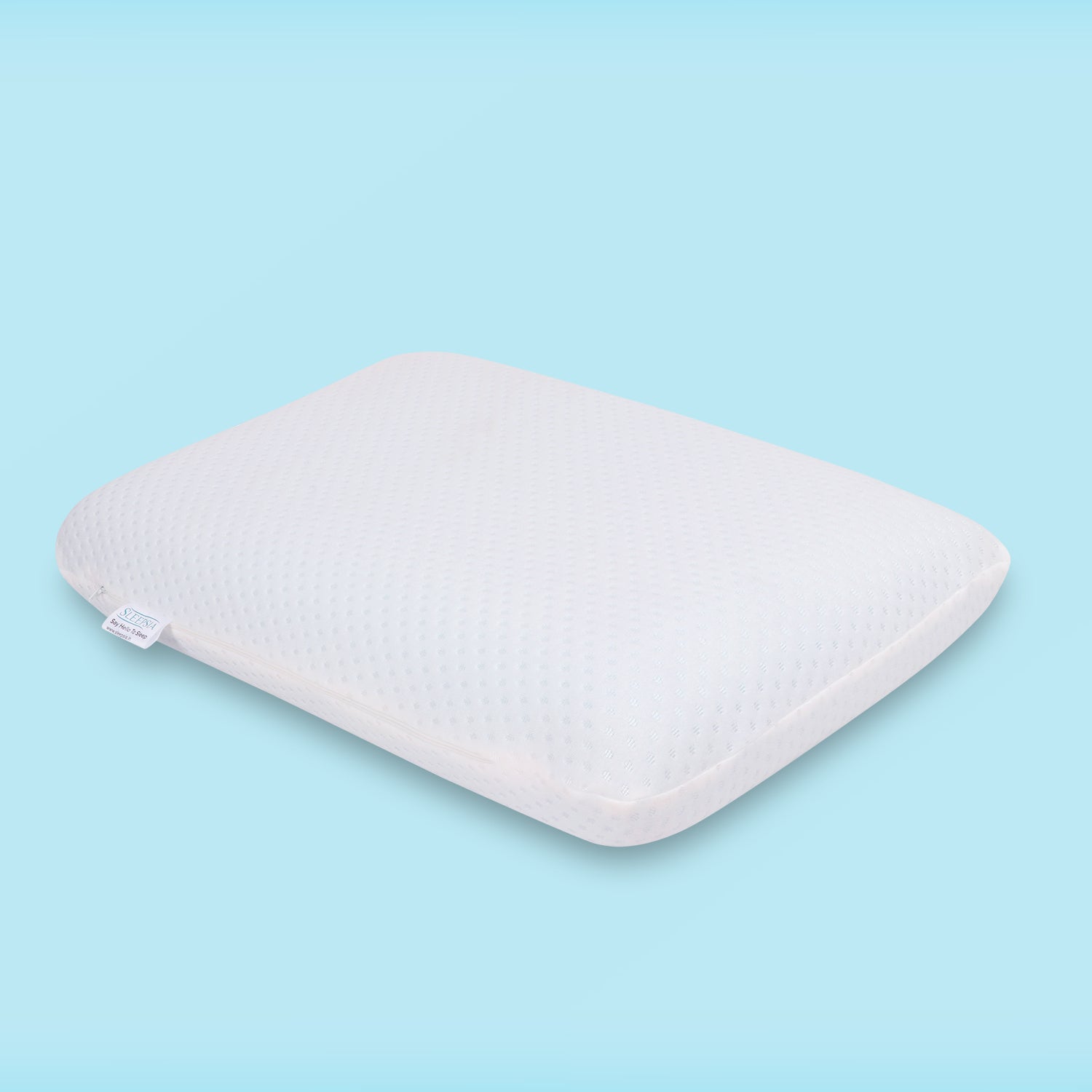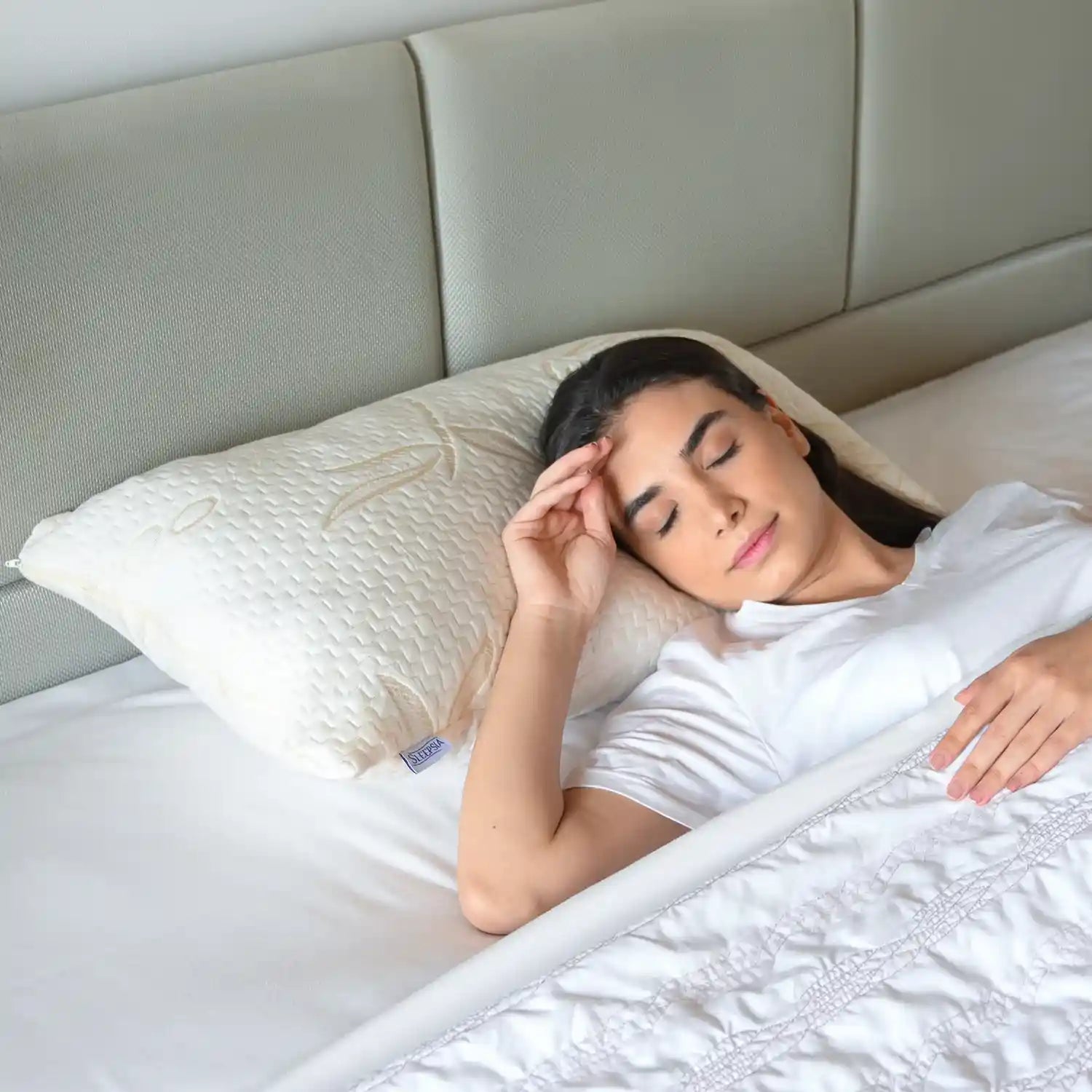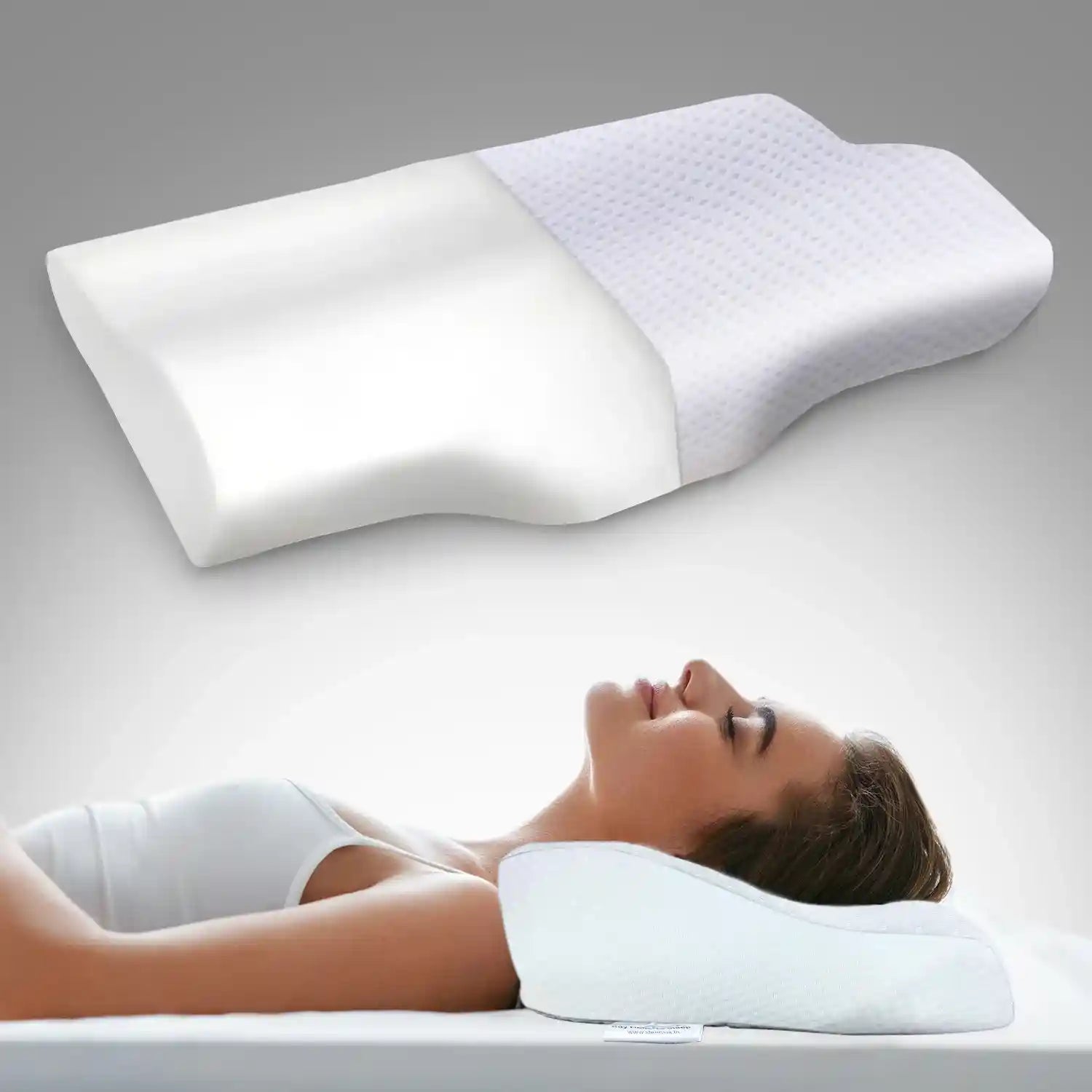
The Best Time to Sleep and Wake Up: A Guide to Healthy Sleep Habits
In this fast moving world, where everyone wants to do their best, one thing we often sacrifice is sleep. Getting enough rest at night is very important for our overall health and wellbeing. Most experts advise that adults should get 7 to 9 hours of sleep each night to perform efficiently during the day.
If you are wondering, What could be the best time for me to sleep and wake up? In this blog, we'll discuss the science behind sleep cycles and circadian rhythms so that you can optimize your sleep schedule for a better, more energized life.
Recommended Products
What is The Best Time to Sleep?
You've probably heard the saying "early to bed, early to rise, make a man healthy, wealthy, and wise". Experts advise that It's best to hit the bed earlier and rise with the sun. The main reason behind this is that our bodies naturally feel sleepier after sundown, so it makes sense to follow this pattern.
If you are an adult, the best time to go to bed is 10:00 p.m. since it allows us to have 5 full sleep cycles during the night and helps us start our day early.
Although, the time to go to bed can be different for different people depending upon factors like age, lifestyle, and individual differences.
To determine your ideal bedtime, count back 7 hours from the time you need to wake up in the morning. For example, if you have to be up at 6 a.m., consider winding down by 11 p.m. This ensures you get the recommended minimum sleep for adults.
How many hours of sleep do we need?
According to the National Sleep Foundation, adults sleep at least 7 hours per night. Here's a breakdown of how much sleep you should get based on your age:
How circadian rhythms works
Our circadian rhythm is like our internal clock, regulating our natural sleep-wake cycle. Throughout a 24-hour period, everyone experiences fluctuations in alertness and wakefulness.
There are two time periods when people tend to feel most tired and sleepy during the day: between 1 p.m. and 3 p.m., and again between 2 a.m. and 4 a.m.
It completely depends on the quality of your sleep at night. The better the quality of your sleep at night, the less likely you are to feel sleepy and tired during the day.
Your circadian rhythm influences when you naturally feel sleepy and when you wake up. Setting up a consistent bedtime and wake-up time helps your brain adapt to this schedule.
Over time, when you stick to a regular sleep schedule, it is easier for you to fall asleep at night and wake up without difficulty in the morning.
However, if you are someone with irregular work shifts or inconsistent sleep patterns during the week, it can throw off your circadian rhythm, leading to periods of daytime sleepiness.
Side Effects of Not Getting Enough Sleep
- Daytime Sleepiness: If you feel sleepy during the day, it means you aren't getting enough sleep at night. This can reduce your alertness and increase your chances of getting into an accident.
- Irritability: Not getting enough sleep can cause you to be grumpy and easily annoyed, which can have an impact on your mood and relationships.
- Amnesia: Sleep helps to solidify memories, therefore a lack of sleep can cause amnesia and difficulties concentrating.
Also Read:- why do i feel sleepy all the time
Long-Term Health Risks
- Weak Immune System: If you are not getting enough sleep, this can weaken your body's defenses, making you more prone to getting sick.
- High Blood Pressure: Lack of sleep has been linked to high blood pressure, which increases the risk of heart disease and stroke.
- Diabetes Risk: Sleep deprivation can disrupt insulin production and increase the risk of developing diabetes.
- Heart Disease: Chronic sleep deprivation is associated with an increased risk of heart disease.
- Weight Gain: Not getting enough sleep can disrupt hunger hormones, leading to overeating and weight gain.
- Mental Health Issues: Lack of sleep can contribute to feelings of depression and anxiety.
Tips to Get Enough Sleep at Night
Be Consistent with Sleep Schedule
Consistency is key when it comes to sleep. It may be very tempting to stay up late on weekends and sleep late in the morning, this can disrupt your sleep-wake cycle.
Try to stick to the same sleep schedule every day, even on weekends. Going to bed and waking up at the same time helps regulate your body's internal clock, making it easier to fall asleep and wake up naturally.
A Fix Nighttime Routine
Having a fixed nighttime routine is very important to sleep on time. We all have a night time routine even if we don’t realize it. You brush your teeth, change into your pajamas, reading or listening to soft music before sleep is all part of your nighttime routine. You can make this routine better by adding tasks that work for you.
Everyone's sleep requirements are unique, so listen to your body and alter your sleep routine accordingly. If you're still feeling sleepy throughout the day despite sleeping the whole night, it's possible that you need to adjust your sleeping habits. Pay attention to how your body feels and make changes as necessary.
A Good Sleep Environment
It's not just about the number of hours you sleep; the quality of your sleep matters too. To ensure good quality sleep, create a relaxing bedtime routine and sleep environment.
Minimize noise, light, and distractions in your bedroom, and invest in a comfortable mattress and pillows. Avoid screens before bed, as the blue light emitted by electronic devices can interfere with your body's production of melatonin, a hormone that regulates sleep.
It is also important to have a good mattress and pillow, when it comes to improving your sleeping environment. A supportive pillow that balances your head, neck, and spine can improve your sleep quality and relieve discomfort. But, with so many alternatives available on the market, how can you choose the best cushion for your needs?
Selecting the Ideal Pillow for Your Sleep Style
The first step in selecting the right pillow is to consider your preferred best sleeping position. Whether you sleep on your side, back, or stomach, there is a pillow made to meet your specific needs.
Side sleepers may benefit from a firm pillow with extra loft to keep their spine in perfect alignment, whilst back sleepers may prefer a medium-firm cushion to provide appropriate support without stressing the neck.
The best pillow for side sleepers: Memory Foam Pillow
The best pillow for back sleepers: Bamboo Pillow
Conclusion
You are one lucky fellow if you wake up all refreshed in the morning. Getting deep quality sleep at night is very important for our physical as well as mental health. What is the best time to sleep and best time to wake up so that we can improve our sleep quality and overall well being and feel more energized and refreshed each day. If you are struggling to sleep at night, you can consult your doctor about the same.
















